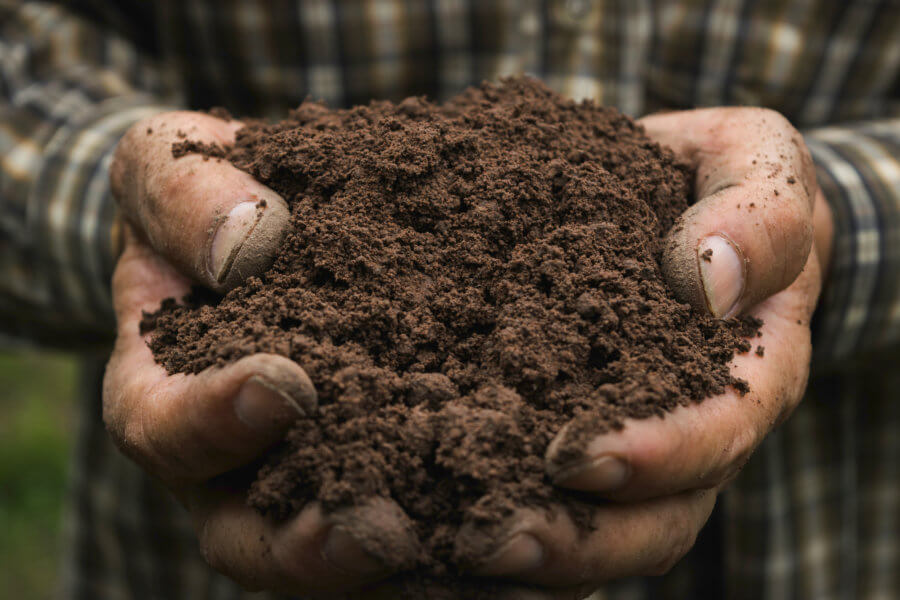
What Can A Soil Sample Tell You About Your Garden?
To keep your Florida lawn at its best, it is important to care for the soil underneath as well. It is the soil that provides much of the nutrition your lawn needs, so deficiencies in the soil can lead to problems with your grass. Before you can improve the health of your soil, though, you need to have a solid understanding of its current condition. That’s where soil sampling comes in. A soil test can reveal a wealth of information about the composition of your soil so you know how it needs to be adjusted to achieve optimal lawn health. Read on to learn what a soil sample can uncover.
Soil pH Levels
The pH level of your soil is a measure of how acidic or alkaline it is. A pH of 7 represents neutral, with lower scores being more acidic and higher numbers more alkaline. The right pH for your soil will depend on the type of grass you have, as well as what other plants make up your garden. In general, though, most grasses prefer soil that is just slightly acidic, coming in between 6.5 and 7 on the pH scale. If your soil falls outside this range, you can add lime to increase the pH or sulfur to reduce it. Keep this in mind when selecting fertilizers for your lawn.
Nutrient Deficiencies
Grasses and other plants require a variety of nutrients to survive and thrive. The primary nutrients needed include nitrogen, potassium, phosphorus, magnesium, and calcium. Though there are other nutrients common in soil, these are the ones that provide the bulk of nutrition for your lawn. If your soil test identifies that any of these components are missing or present only in low levels, you can target them with fertilizer to improve the overall balance. Fertilizers come in a wide range of formulations to suit different purposes, so take your time in selecting the most appropriate one to meet your needs. Compost can also be highly useful in balancing nutrient levels.
Soil Salinity
This is an area of particular concern in Florida, as so many homes are in coastal environments. When salt from the ocean makes its way into your soil through flooding or ocean spray, it can be harmful to your lawn in high levels. Though there are some grass types that tolerate salt well, most do not, so it is important to keep an eye on salinity levels. Applying too much fertilizer or the wrong type of fertilizer can increase salinity as well. It is difficult to reverse high salinity and can be quite costly, so a better course of action is to keep it under control from the start. Desalting plants can help remove salt from the soil, and improving drainage can prevent it from accumulating in the first place.
When to Test Your Soil
Here in Florida, most homeowners fertilize their lawns in the fall or spring, making these the perfect times to conduct soil testing. This way, you’ll have the latest information about your soil when making fertilizer selections. For the best results, test your soil at least once a year so you can make adjustments as needed. If this is not feasible for you, you may be able to get by with testing your soil only when you begin to notice issues with your lawn’s health.
How to Take a Soil Sample
When testing your soil, you can collect the samples yourself or entrust this task to your lawn care professional. If you choose to go the DIY route, you can pick up soil testing kits at most garden or home improvement stores. Be sure to collect samples from multiple areas of your lawn, particularly if some areas are more shaded or sloped than others, as these differences can lead to soil variations. Don’t collect soil samples when the soil is wet, as this can compromise the sample, and don’t take samples after fertilizing, as the fertilizer will impact the results. Always test first, then fertilize after. Once you have collected the samples, you’ll need to send them to a qualified soil testing laboratory for analysis.
What to Do with Your Test Results
Once you have the results of your soil test, you can begin to make a plan for restoring soil health. The experts here at Duda Sod can provide recommendations for improving your soil, as well as for which grasses will perform best with your unique soil composition. Reach out to our team today to learn more about how we can help you keep your lawn at its best.